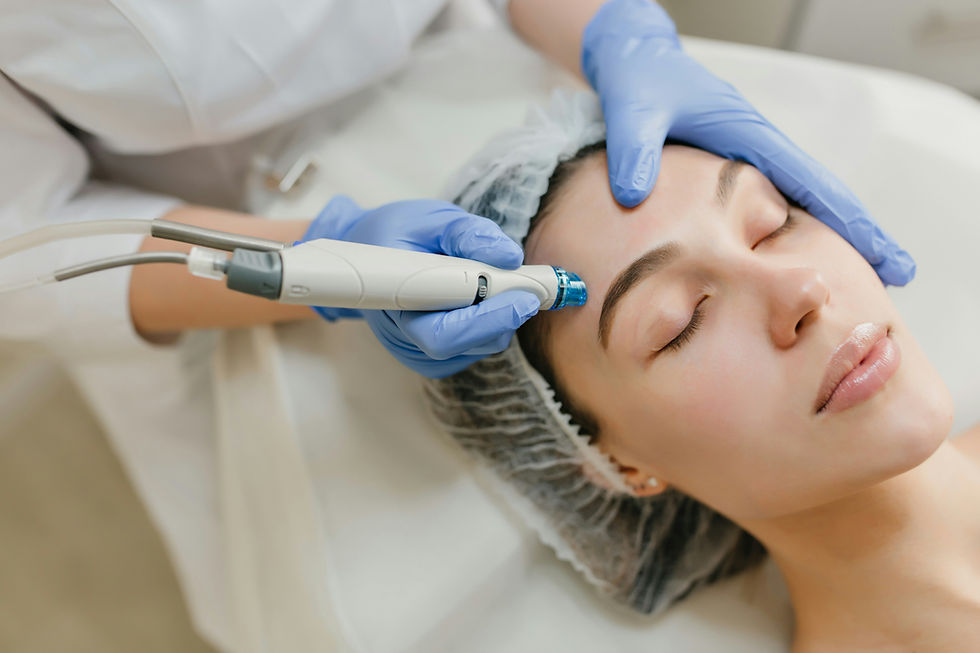Microdosing Mushrooms - Facts
- anikapearlnecosia
- Feb 13, 2023
- 3 min read

Microdosing is consuming small amounts of psychedelic substances, such as LSD and psilocybin-containing mushrooms. Individuals who have incorporated microdosing into their daily lives report various positive effects, including increased creativity, energy and focus.
Many people are turning to microdosing to improve their mental health. While there isn't much research on the topic, many individuals swear by the benefits they have experienced.
How to Microdose
Microdosing mushroom is a growing trend among people who want to enhance their day-to-day lives by integrating psychedelic substances into their routines. Many enthusiasts report that microdosing has boosted creativity, increased energy, improved relationships and reduced anxiety or stress.
The key to microdosing safely is ensuring you follow a consistent schedule and avoid taking the substances in public settings where drug tests could pick them up. Also, you should take a few days off work and social commitments when you start microdosing to observe how you feel and judge the effects on your own.
In addition to a consistent schedule, you should also be aware that most psychedelic substances are illegal under the Controlled Substances Act. As such, there is a higher risk of getting caught on standard drug testing with these substances. This can lead to legal consequences or even a criminal record. In addition, microdosing can increase the risk of addiction, so it's important to speak with your doctor before deciding to microdose.
Preparation
Microdosing is a growing trend among those seeking mental health benefits from psychedelic drugs. It involves taking a fraction of the "trip" dose of psilocybin or LSD, an amount so low that it doesn't cause hallucinations.
Mushrooms and truffles are the most common choices for microdosing, but other psychedelics have also been popular in recent years. Users describe various effects, from increased creativity to calming anxiety and decreasing the need for caffeine.
One way to make microdoses consistent is to powder-dried mushrooms and put them in capsules. Weigh out the dried mushroom mass before pulverizing it into powder, and then divide that amount into the number of microdoses you want to take.
For this method, a scale that's accurate to 0.1 grams is essential. This is because dried mushrooms aren't exactly uniform in size, and the psilocybin will vary from mushroom to mushroom when you grind them up. So using an electronic scale with a tare function is also important.
Dosage
Microdosing mushrooms is a form of psychedelic substance use where you take very small doses, often a fraction of a full-dose psychedelic experience. People who use microdosing claim it can alleviate anxiety and depression, increase perception and creativity levels, and give you a brighter perspective on life.
A new study found that psilocybin microdosing was associated with improved mood, mental health, and self-control in participants. These benefits, largely reported by the study's participants, included reduced anxiety and depression, enhanced creativity (divergent thinking and openness to curiosity), increased empathy and motivation, and decreased paranoia or numbness.
Researchers who study psychedelic drugs say they are a promising treatment for conditions such as depression, but the benefits of microdosing have been surprisingly hard to measure. This is because there are few randomized control trials on microdosing, and it is still illegal in the United States to buy or ingest psychedelics like psilocybin and LSD. Despite this, some researchers remain optimistic that tiny amounts of hallucinogenic drugs will eventually benefit mental health and cognition.
Effects
When done in low doses, microdosing psychedelics, such as LSD and psilocybin mushrooms, can improve mood and creativity and even increase energy. Several studies have shown that people who microdose these drugs report higher wisdom, more open-mindedness and more creative thinking than those who don't take the substances.
However, some research shows that microdosing does not directly impact cognitive performance. For example, in a Dutch study, psilocybin was found to boost certain aspects of thinking — but not as much as expected.
The effects of a microdose may be largely due to the expectations and experiences people have while taking a psychedelic. This theory is supported by the fact that psilocybin increases brain activity and connectivity. In addition, a Dutch study showed that microdosing had a similar effect on people's ability to perform certain tasks. It's also possible that the drug has a placebo effect. For those reasons, it's important to research the effects of microdosing psychedelics before deciding to try it.



Comments